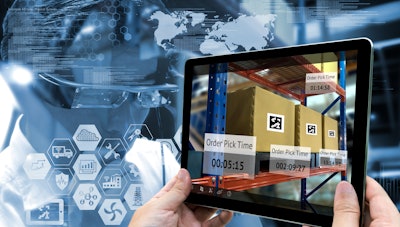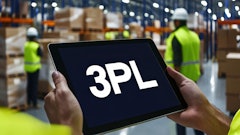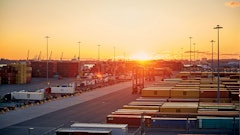
Businesses in all industries are considering how they can reduce their environmental impact. Not only is this important for the future of the planet, but also for the success of the business, as customers and clients are now more inclined to work with companies that have sustainable practices.
Making environmentally friendly choices is particularly important with regards to warehouses. In fact, it's been reported that a staggering 13% of carbon emissions in logistics come from warehouse buildings. So, to make a positive change for both your business and the planet, it's important to think about ways to make your warehouse greener.
One of the best ways to do this is by utilizing the latest warehouse management system (WMS) software. Here’s how a WMS can reduce your business' carbon footprint.
Going paperless can reduce carbon dioxide emissions
Opting for a paperless WMS will not only save printing costs, but it's one of the best changes you can make for the environment too. While many assume that using paper isn't as bad as it once was as it can easily be recycled, the process of making it has a negative impact on the environment. In fact, making 1 ton of paper uses four trees and emits 1.4 tons of carbon dioxide equivalent. And, as it's estimated that 45% of the documents printed are binned the same day, this makes the use of paper in a warehouse seem even more wasteful.
Going paperless is great for warehouse efficiency too, as it's far easier to retrieve relevant information digitally. Plus, significantly reducing the amount of paper documents you keep in the warehouse will give you more space to work with, so you aren't forced to increase the physical footprint of your business.
Cloud-based WMS allow for remote working
One of the main benefits of going paperless with a cloud-based WMS system is that admin and office employees can work from anywhere. If you offer these workers the opportunity for remote working, not only will your staff likely appreciate the flexibility, but you may also be able to cut down on energy used too. As well as being able to shut down computers and appliances not in use, you can also save energy on heating and lighting.
And of course, one of the most prominent positive environmental impacts of remote working is the reduction of carbon emissions from public transport. In fact, research has found that employees who work remotely during the summer months are able to save roughly 400kg in carbon emissions, which is around 5% of the average British commuter’s annual carbon footprint. So, encouraging employees to work from home even just once or twice a week will be beneficial for your warehouses' carbon footprint.
Optimizing warehouse space can reduce physical footprint
If your warehouse always seems short of space, a WMS may be exactly what you need. These systems are designed to make the workplace more efficient by analyzing your warehouse to find the best use of floor space.
A WMS can help organize inventory to maximize the potential space available, so you won't need to increase your physical footprint by moving to larger premises. Not only does this save you money, but also staying in a smaller building will reduce your workplace's energy consumption too. Plus, an efficiently laid out warehouse will minimize travel throughout the building, thereby reducing the energy used by forklifts.
Click here to hear more about creating a sustainable supply chain:
Organization can reduce unnecessary waste
Any logistics worker knows how much waste a warehouse can produce. While this is bad news for the environment, the positive side is that much of this waste isn't necessary and can be significantly reduced by utilizing a decent WMS. Going paperless is a great way to decrease warehouse waste, but there are a number of other methods to take too.
For example, using the latest WMS system will make it easier to monitor inventory levels, and can provide reliable estimates for how much stock you will need for a particular timeframe. This means you're far less likely to end up overordering on stock, which may eventually end up going to waste. And, as implementing a WMS can make it far easier to keep track of stock on the warehouse floor, there is a lot less risk of products becoming lost or having to replace damaged items and packaging.
It's up to all of us to do our bit for the environment, and businesses who operate in warehouses are no exception. If you use a high-quality and reliable WMS, you should be able to experience the eco-friendly benefits and reduce the carbon footprint of your business.




















